
Speaker and Panelist Biographies
The Brown v. Board at 60: Looking Back, Looking Forward Symposium will be held Thursday, February 27, 2014 at the Bradbury Thompson Alumni Center on the Washburn University campus. The symposium is sponsored by the Washburn University School of Law Center for Law and Government and the Washburn Law Journal.
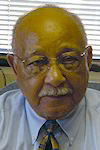 Jack Alexander — Retired; President-elect, Kansas Historical Foundation
Jack Alexander — Retired; President-elect, Kansas Historical Foundation
Mr. Alexander was born in Iola, Kansas. He graduated from Topeka (Kan.) High School in 1949, where he captained the school's last segregated basketball team. Alexander attended Washburn University for two years before serving in the United States Navy from 1952 to 1956. In 1951, he began at the Goodyear Tire and Rubber Company in Topeka and continued to work there until his 1985 retirement. In 1973, Alexander was elected Topeka's Water Commissioner, making him one of the first Topekan African Americans elected to a city office. He served on the Kansas Water Authority from 1981 to 1985. From 1985 to 1990 Alexander worked as a manager of permits, compliance, and enforcement at the Kansas Department of Health and Environment's Department of Water. He later worked as a legislative liaison within the Office of the Governor, also serving on the Topeka City Council. In 1991, Alexander became the first minority appointed to the Kansas Corporation Commission. He was appointed temporary State Fire Marshal in 2004. He has been involved in numerous organizations, including serving as Vice President of the NAACP's Topeka Chapter and the United Way of Topeka; serving on the Board of Stormont-Vail Regional Medical Center; and serving as President of the Board of the Shawnee County Community Assistance and Action, Inc.
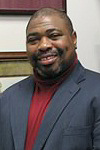 Abel A. Bartley — Director, Pan-African Studies Program, Clemson University
Abel A. Bartley — Director, Pan-African Studies Program, Clemson University
Professor Bartley is a native of Jacksonville, Florida. He graduated from Florida State University with an M.A. in history and a Ph.D. in African-American and urban history. Prior to Clemson, Bartley held positions at Florida A&M University, Tallahassee Tech, and Akron University. He joined Clemson in 2004 to develop from scratch the Pan-African Studies program, which aims to look at Africans wherever they touch people globally, rather than just in the United States. Bartley is the author of several essays on race, politics, and the Civil Rights movement, and the book, Keeping the Faith: Race, Politics, and Social Development in Jacksonville, Florida, 1940-1970 (Praeger 2000).
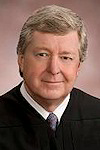 The Honorable Dan Biles — Justice, Kansas Supreme Court
The Honorable Dan Biles — Justice, Kansas Supreme Court
Justice Biles earned a B.S. in Journalism from Kansas State University in 1974 and his J.D. from Washburn University School of Law in 1978. Prior to working in private practice he served five years, beginning in 1980, as a Kansas Assistant Attorney General in the Litigation Division. Previously, Biles had been a writer for The Associated Press in Topeka, reporting on state legislative hearings and sessions, the Kansas Supreme Court, Governor's office, state agencies, and various state and federal political campaigns. He was in private practice for 24 years prior to being appointed to the Kansas Supreme Court in 2009. Biles' private practice emphasized administrative, trial, and appellate work on behalf of individuals, corporations, and various state, county, and local government agencies. During this period he represented the Kansas State Board of Education and served for five years as general counsel to the Kansas Turnpike Authority. He served on the board of directors of Community Living Opportunities Inc., was an advisory board member of the Johnson County Housing Coalition, and is a member of Friends of the Schielfelbusch Life Span Institute. Biles is a past chair of the National Council of State Education Attorneys, and in 2009 received the state education attorney's Douglas F. Bates Distinguished Service Award.
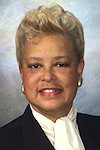 Deborah L. Dandridge — Field Archivist and Curator, African American Experience Collections, Kenneth Spencer Research Library, University of Kansas
Deborah L. Dandridge — Field Archivist and Curator, African American Experience Collections, Kenneth Spencer Research Library, University of Kansas
Ms. Dandridge is a native of Topeka, Kansas. She graduated from Washington Elementary school, the largest of the city's schools designated for African American students before 1954. Dandridge earned a B.A. in history from Washburn University, an M.A. in history from Atlanta University, and completed her Ph.D. comprehensive exams in history at the University of Kansas (KU). Early in her career, she served on the History faculty at Washburn and as EEO Officer for the Shawnee County Community Action Agency. In 2002, as a member of the Board of Directors for the Brown Foundation, Dandridge was appointed to the Brown v. Board 50th Anniversary Commission. Recently, she completed several terms as representative of the 2nd District for the Kansas African American Affairs Commission and was among the 10 recipients of the James E. Butler Civil Rights Award sponsored by the Kansas Human Rights Commission last spring. Dandridge is a 2008 recipient of the Gretchen and Gene A. Budig Distinguished Librarian Award for KU library faculty. She is also co-author of the national traveling exhibit In Pursuit of Freedom and Equality: Kansas and the African American Public School Experience, 1855-1955.
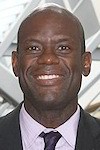 Preston Green — John and Carla Klein Professor of Urban Education, Neag School of Education, University of Connecticut
Preston Green — John and Carla Klein Professor of Urban Education, Neag School of Education, University of Connecticut
Professor Green received a B.A. in government from the University of Virginia, earned a J.D. from Columbia University, and an Ed.D. in educational administration from Columbia University, Teachers College. In addition to his position at Neag School of Education, Green is a professor of educational leadership and law at the University of Connecticut. Before joining the University of Connecticut, he was the Harry Lawrence Batschelet II Chair Professor of Educational Administration at Penn State, where he was also a professor of education and law and the program coordinator of Penn State's educational leadership program. Green was also the creator of Penn State's joint degree program in law and education. He ran the Law and Education Institute at Penn State, a professional development program that teaches administrators and attorneys about educational law. At the University of Massachusetts, Green was an associate professor of education and also served as the program coordinator of educational administration and assistant dean of Pre-Major Advising Services. Green has written four books and numerous articles and book chapters pertaining to educational law. He primarily focuses on the legal and policy issues pertaining to educational access and school choice.
 Chris Hansen — Retired; formerly Staff Attorney, American Civil Liberties Union
Chris Hansen — Retired; formerly Staff Attorney, American Civil Liberties Union
Mr. Hansen joined the American Civil Liberties Union (ACLU) in 1973. He spent 10 years at the New York Civil Liberties Union, specializing in complex litigation seeking reform of the mental retardation and mental health systems. He later spent 10 years as the associate director of the Children's Rights Project of the ACLU, specializing in complex litigation seeking reform of child welfare systems and in school desegregation. Beginning in the mid-1990s, Hansen was a staff attorney at the ACLU and worked on a wide variety of cases. He led the ACLU's decades-long, successful battle to ensure that speech on the Internet receives the highest First Amendment protection. Most recently, Hansen led the ACLU's effort to invalidate patents granted on human genes. He has argued cases in the U.S. Supreme Court, and many of the federal courts of appeals, federal district courts, and state trial and appellate courts. He retired from the ACLU in 2013.
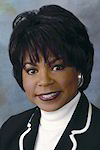 Cheryl Brown Henderson — Founding President, Brown Foundation for Educational Equity, Excellence and Research
Cheryl Brown Henderson — Founding President, Brown Foundation for Educational Equity, Excellence and Research
Ms. Brown Henderson is one of the three daughters of the late Reverend Oliver L. Brown, who, along with 12 other parents led by the NAACP, filed a lawsuit against the local Board of Education on behalf of their children in the historic case Oliver L. Brown, et. al. v. Board of Education of Topeka, et. al. Upon appeal to the U.S. Supreme Court, the case became the lead among five other legal challenges. Brown Henderson currently serves as president and CEO of the Brown Foundation for Educational Equity, Excellence and Research, which she founded in 1988. Under Brown Henderson's leadership, the Foundation successfully worked with the U.S. Congress to establish the Brown v. Board of Education National Historic Site in one of Topeka's four formerly segregated African American schools. The site opened in 2004 in conjunction with the 50th anniversary of the Brown decision. Brown Henderson is the owner of Brown & Brown Associates, an educational consulting firm, and has an extensive background in education, business, and civic leadership, having served on and chaired various local, state, and national boards. She has nearly two decades of experience in political advocacy, public policy implementation, and federal legislative development. Brown Henderson has been a sixth grade teacher, university guest lecturer, school guidance counselor, and state educational administrator. She is past chair of Women Work, a national network that represented some 15 million women nationwide who were seeking career assistance and employment in non-traditional fields.
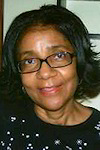 Shirley A. Hill — Professor, Department of Sociology, University of Kansas
Shirley A. Hill — Professor, Department of Sociology, University of Kansas
Professor Hill teaches and researches in the fields of family sociology, medical sociology, and social inequality. With Professor John L. Rury, she recently co-authored a book entitled The African American Struggle for Secondary Schooling 1940-1980: Closing the Graduation Gap (Teachers' College Press, 2011). This book explores the factors that were responsible for the surge in high school attendance and completion among African Americans that began in the 1940s. Most of Professor's Hill's work has been in the area of families and health care, including African American Children: Socialization and Development in Families (Sage Publications, 1999) and Black Intimacies: A Gender Perspective on Families and Relationships (AltaMira Press, 2005) and other books and articles.
 Juan F. Perea — Professor of Law, Loyola University Chicago School of Law
Juan F. Perea — Professor of Law, Loyola University Chicago School of Law
Professor Perea teaches constitutional law, professional responsibility, race and the law, and employment law. Prior to joining the Loyola faculty, he was the Cone, Wagner, Nugent, Johnson, Hazouri & Roth Professor of Law at the University of Florida Levin College of Law. Perea has been a visiting professor at Harvard Law School, Boston College Law School, and the University of Colorado School of Law. He also served as the Lee Distinguished Chair in Constitutional Law at John Marshall Law School during the 2012-2013 academic year, and as the Reuschlein Distinguished Visiting Professor at Villanova Law School during spring 2011. He has written extensively on racial inequality, the legal history of race relations in the United States, and the civil rights of Latinos. His articles have appeared in Harvard Law Review, California Law Review, New York University Law Review, Michigan Law Review, Minnesota Law Review, and William and Mary Law Review, among others. He is the author of Race and Races: Cases and Resources for a Diverse America (2d ed., West 2007) (with Delgado, Harris, Stefancic, and Wildman), Latinos and the Law (West 2008) (co-author), and Immigrants Out! The New Nativism and the Anti-Immigrant Impulse in the United States (NYU Press 1997). Perea has testified as an expert before the U.S. Senate, the U.S. Equal Employment Opportunity Commission, and the U.S. Commission on Civil Rights. He is a member of the American Law Institute. Upon graduation from law school, he clerked for the Hon. Bruce M. Selya of the U.S. Court of Appeals for the First Circuit.
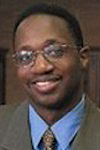 Cedric Merlin Powell — Professor of Law, University of Louisville Louis D. Brandeis School of Law
Cedric Merlin Powell — Professor of Law, University of Louisville Louis D. Brandeis School of Law
Professor Powell teaches Constitutional Law, Professional Responsibility, Evidence, Criminal Law, Race and the Law, and Critical Race Theory. He received his B.A. with Honors in Politics from Oberlin College in 1984 and his J.D. in 1987 from New York University School of Law, where he served as Managing Editor of the New York University Review of Law and Social Change. Powell served as law clerk to the Honorable Julia Cooper Mack of the D.C. Court of Appeals from 1987 to 1988; he was a Karpatkin Fellow in the national office of the American Civil Liberties Union in New York from 1988 to 1989; and he practiced as a litigation associate with Skadden, Arps, Slate, Meagher & Flom in New York from 1989 to 1993. Powell joined the University of Louisville Brandeis School of Law faculty in 1993, was promoted to full professor in 2000, and served as Associate Dean for Academic Affairs from 2001 to 2004. He is a member of the Ohio and New York state bars, and is admitted to practice before the U.S. Supreme Court, the United States Courts of Appeal for the Second and Sixth Circuits, and the United States District Courts for the Southern and Eastern Districts of New York. Powell's articles have appeared in the Harvard BlackLetter Law Journal, University of Miami Law Review, Saint Louis University Public Law Review, and the Washington University Journal of Law & Policy, among others. Currently, Professor Powell is working on an article on the First Amendment and the public square and how that concept can be used to analyze the "Jena 6" case. Professor Powell's scholarship analyzes structural inequality, post-racialism, and the continuing influence of race in the law. He was awarded the University's Multicultural Teaching Award in 2000.
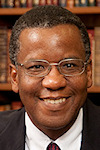 Reginald Robinson — Professor of Law, Washburn University School of Law; Co-organizer of Brown v. Board at 60 Symposium
Reginald Robinson — Professor of Law, Washburn University School of Law; Co-organizer of Brown v. Board at 60 Symposium
Professor Robinson is director of the Center for Law and Government at Washburn Law. Before joining Washburn Law, Robinson served as president and chief executive officer of the Kansas Board of Regents. Prior to that, he was chief of staff to the University of Kansas (KU) chancellor and was a visiting associate professor in the KU School of Law, where he taught civil rights, criminal law, torts, and local government law courses. Robinson joined the U.S. Department of Justice in 1993 as a White House Fellow, and in that capacity served as a special assistant to Attorney General Janet Reno. He then was appointed to a number of senior executive posts. As deputy assistant attorney general for the Office of Justice Programs (OJP) he led the attorney general's effort to coordinate the department's involvement in a number of community-based public safety initiatives, including Project PACT (Pulling America's Communities Together), Operation Weed and Seed, and the Clinton Administration's Empowerment Zone Initiative. He also led the OJP's effort to implement the 1994 Crime Act's Drug Courts Program. After two years at OJP, Robinson was appointed deputy associate attorney general of the United States, where he was a key advisor to the associate attorney general on environmental, civil rights, and justice programs matters. His work on a proposed victims' rights amendment to the United States Constitution led to an appointment as acting director of the Office for Victims of Crime (OVC), the federal government's lead agency for addressing issues facing the nation's crime victims. Before attending law school, Robinson served four years as a field artillery officer in the United States Army and was honorably discharged at the rank of captain. He earned his undergraduate and law degrees from the University of Kansas. While in law school, he was editor in chief of the University of Kansas Law Review. Upon graduation Professor Robinson was a law clerk to Judge Deanell R. Tacha, of the U.S. Court of Appeals for the Tenth Circuit.
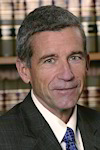 William Yeomans — Fellow in Law and Government, American University Washington College of Law
William Yeomans — Fellow in Law and Government, American University Washington College of Law
Professor Yeomans joined the faculty of law of the American University Washington College of Law in 2009 where he teaches courses on civil rights, legislation and the legislative process. He also directs the Legislative Practicum. From 2006 to 2009, he served as Senator Edward M. Kennedy's Chief Counsel on the Senate Judiciary Committee. Prior to that, Yeomans spent 26 years at the Department of Justice, where he served in a variety of leadership positions in the Civil Rights Division, including as acting assistant attorney general, chief of staff, and deputy assistant attorney general. He also litigated and supervised civil rights cases in the federal courts at all levels involving voting rights, school desegregation, employment discrimination, housing discrimination, hate crimes, police misconduct, abortion clinic violence, and human trafficking. Yeoman has been the legal director of the Alliance for Justice and the first director of programs for the American Constitution Society.
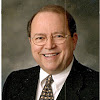 Joseph Zima — Retired; formerly School District Attorney, Topeka Unified School District 501
Joseph Zima — Retired; formerly School District Attorney, Topeka Unified School District 501
Mr. Zima earned a B.A. in Political Science from Washburn University in 1969 and his J.D. from Washburn University School of Law in 1972. Prior to joining Topeka Public Schools, Zima was an assistant county counselor for Shawnee County, Kansas; a legal advisor to the Shawnee County Sheriff's Department; and an attorney for the State of Kansas.
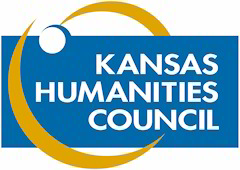
This event is funded in part by a generous grant from the Kansas Humanities Council.